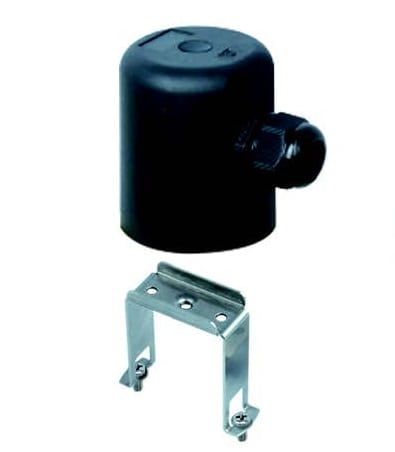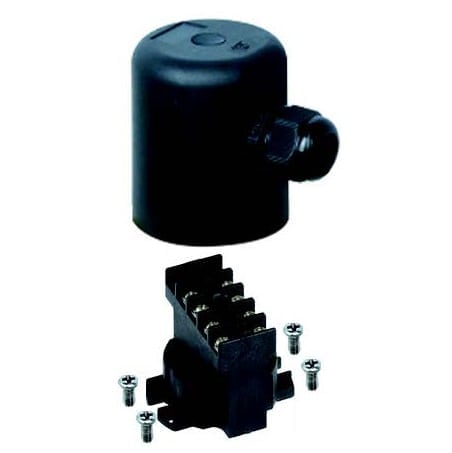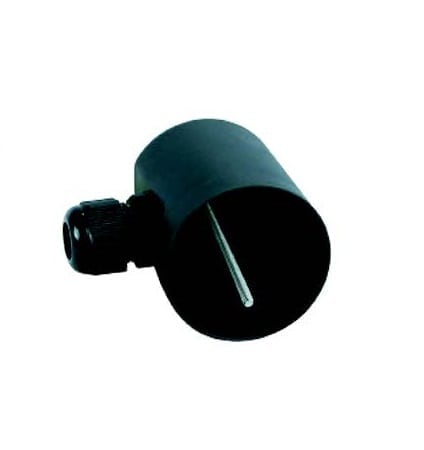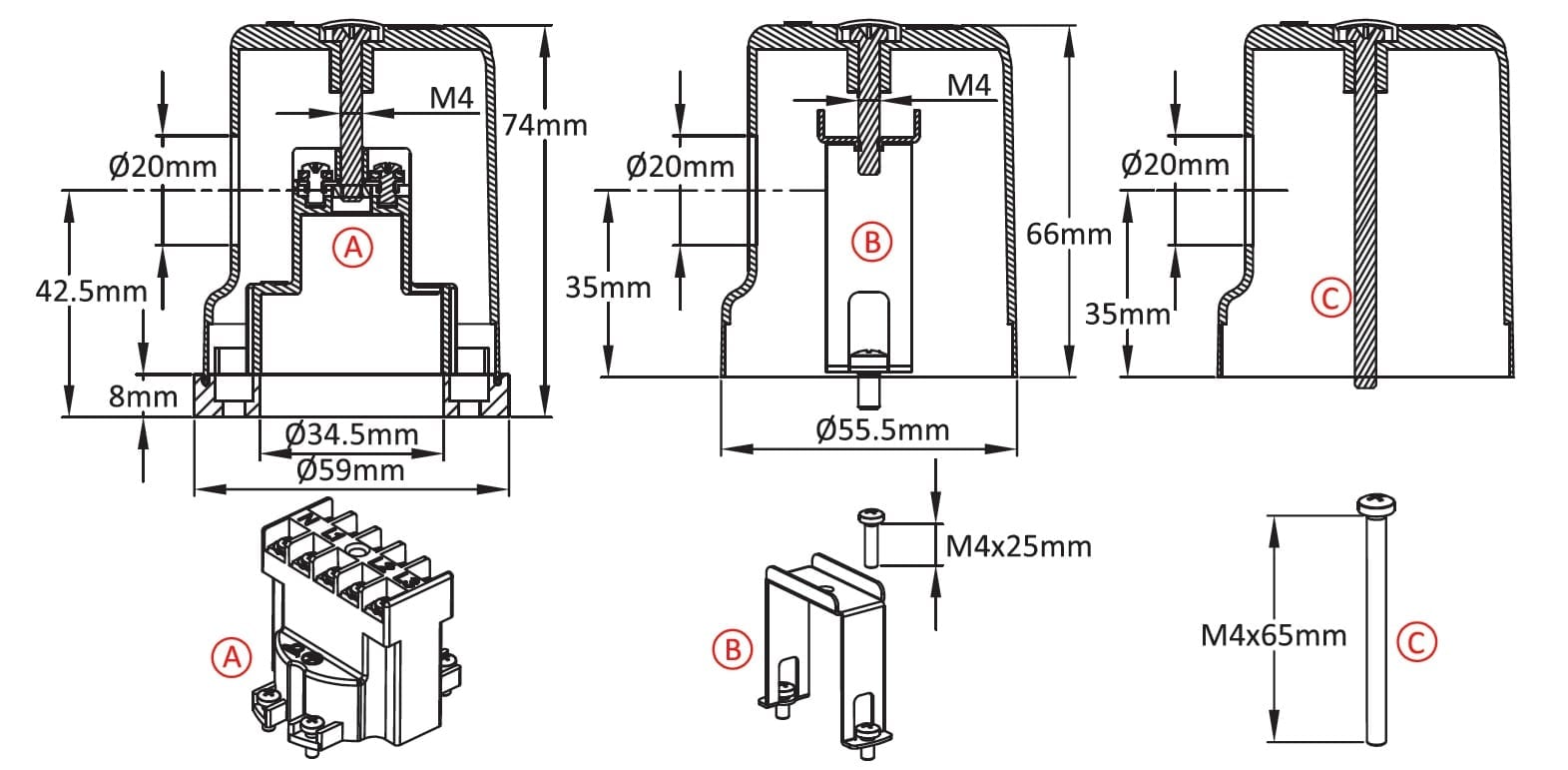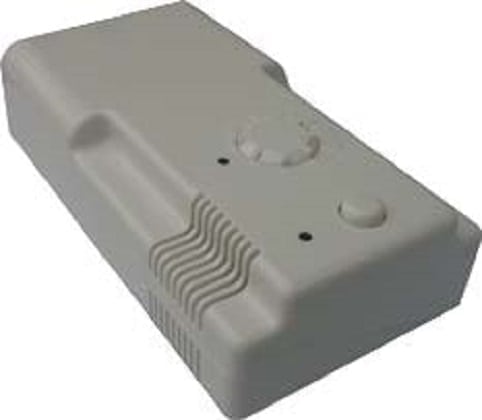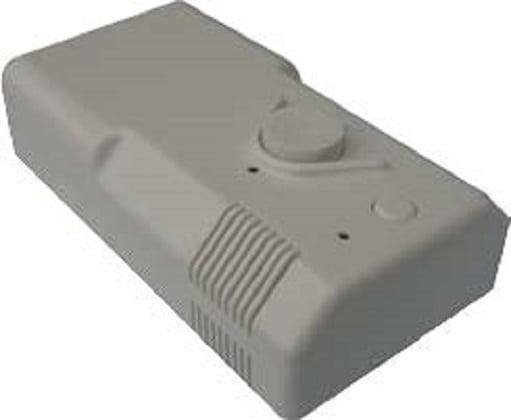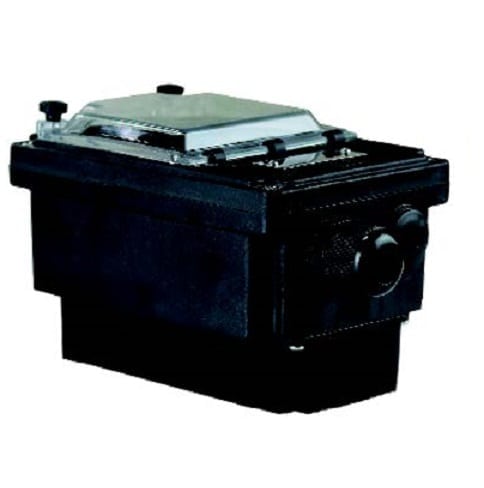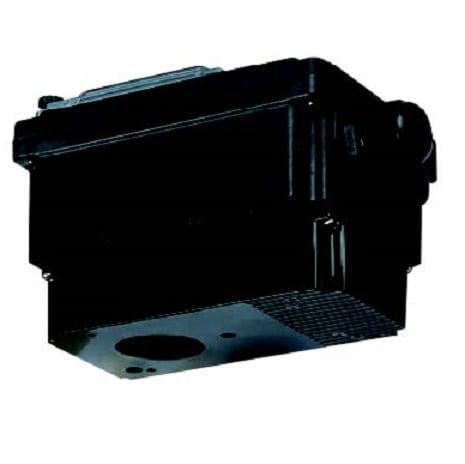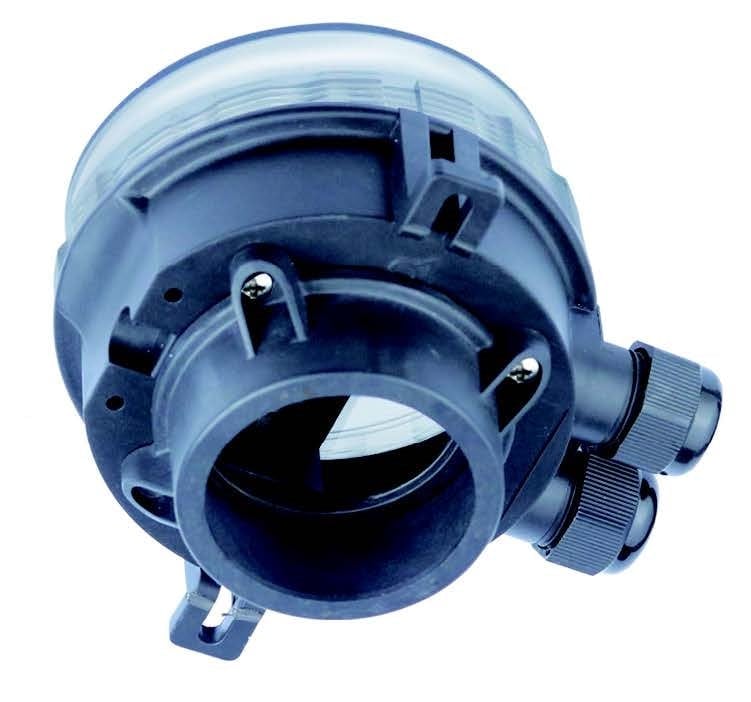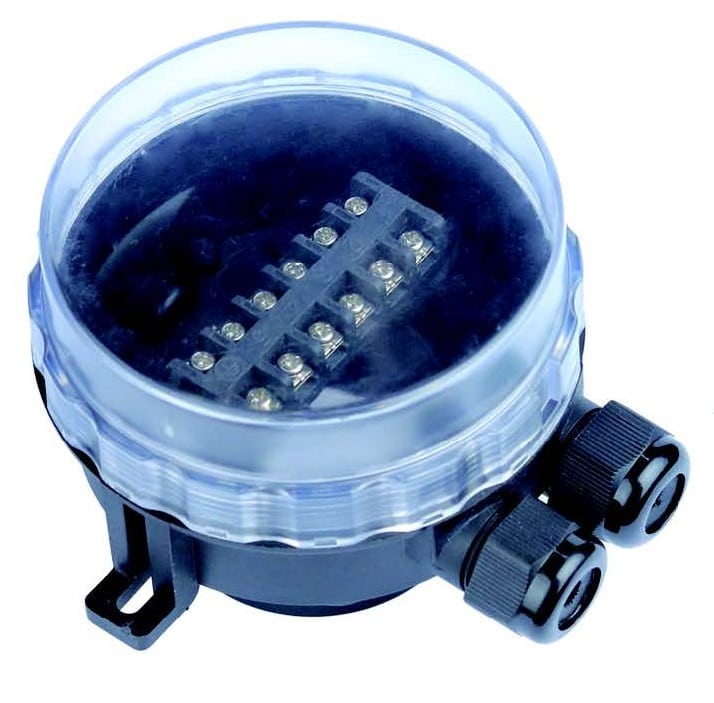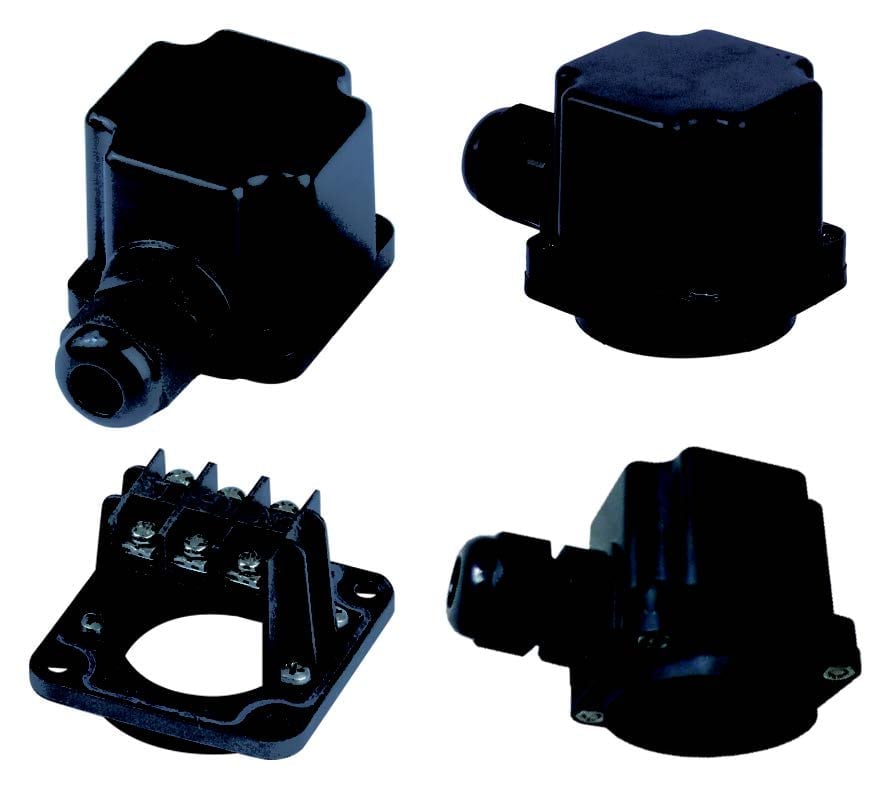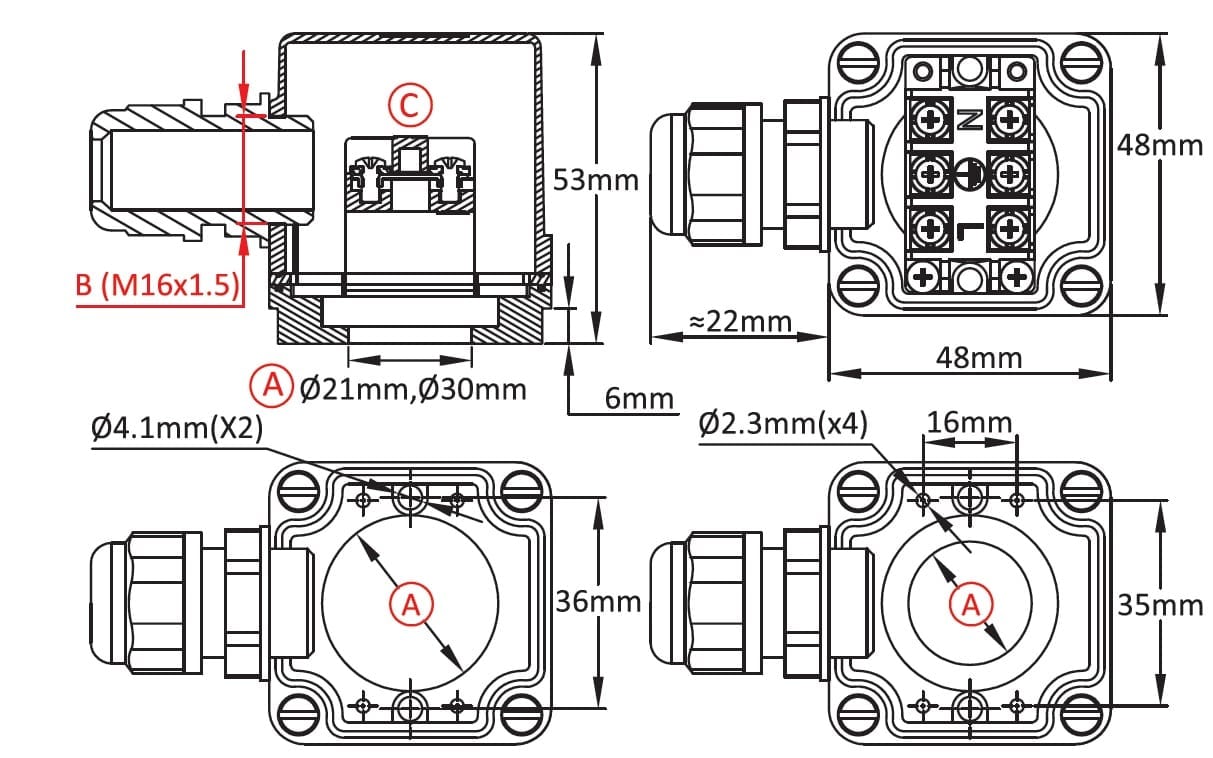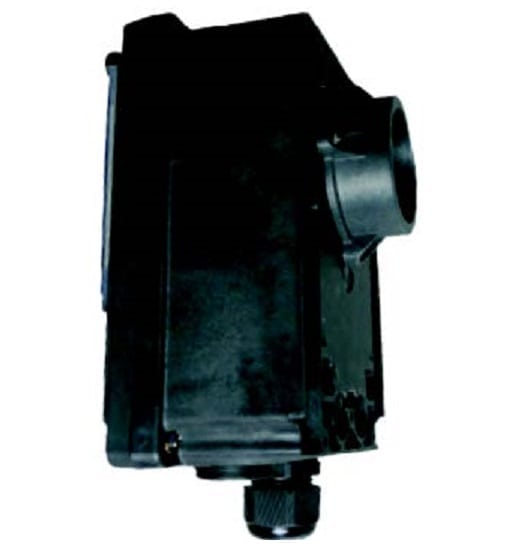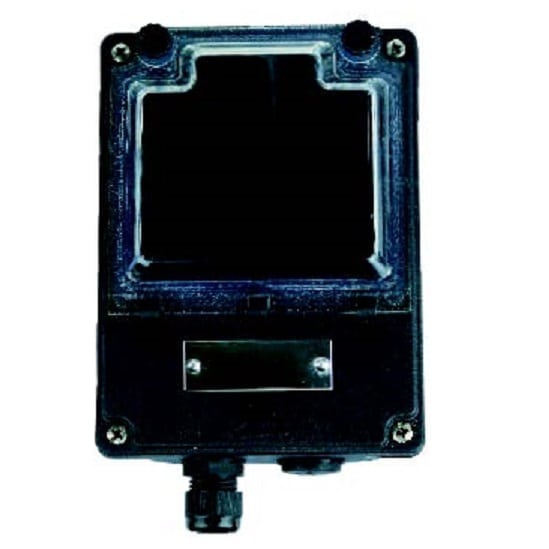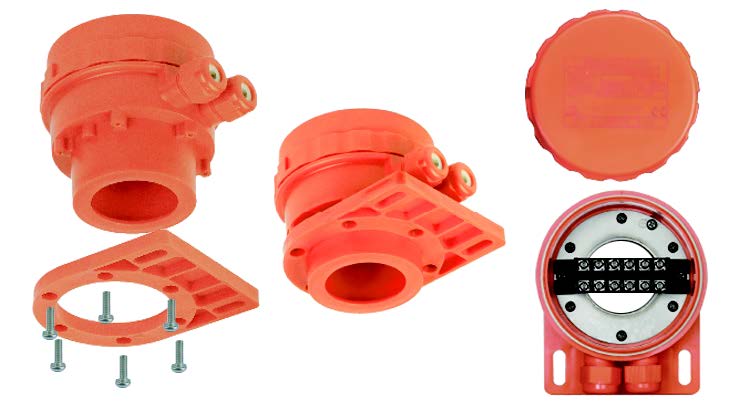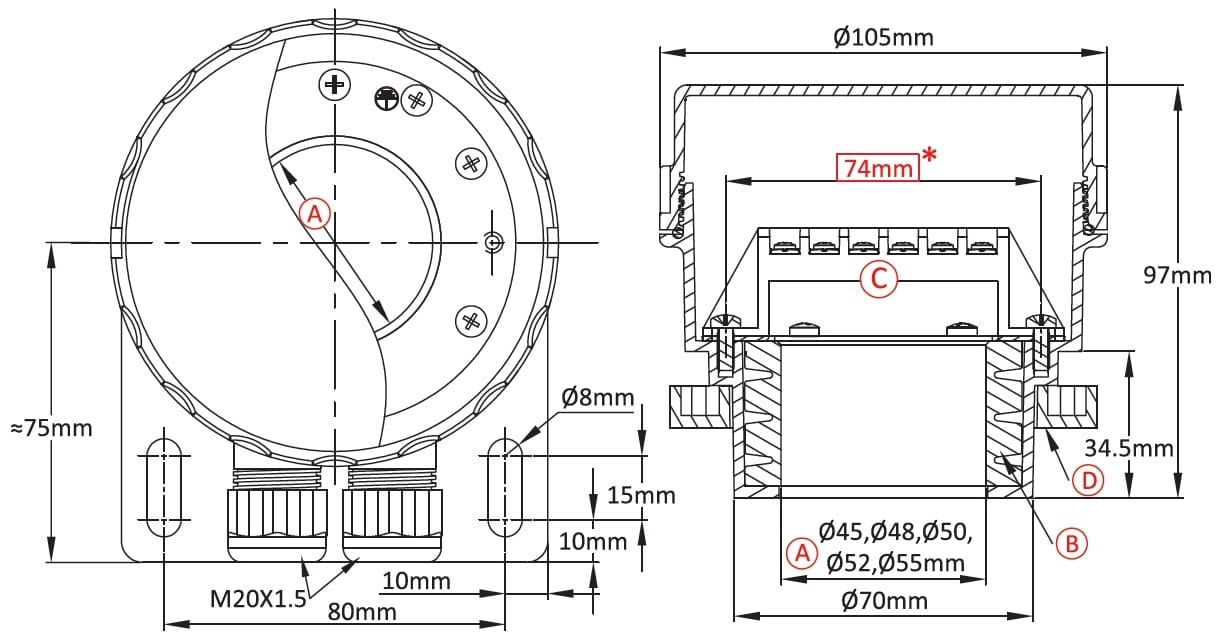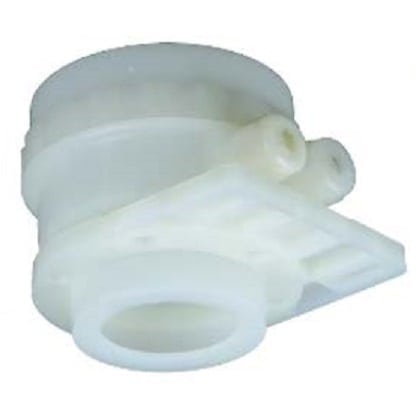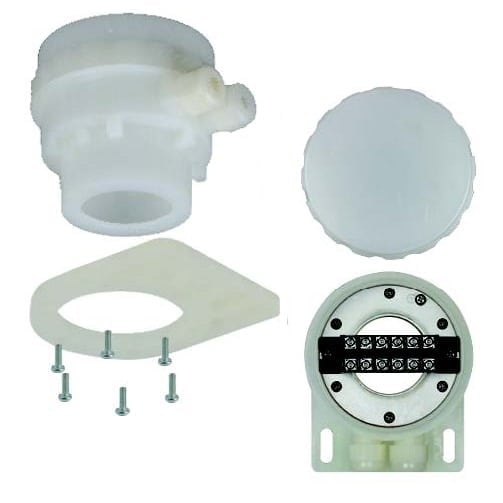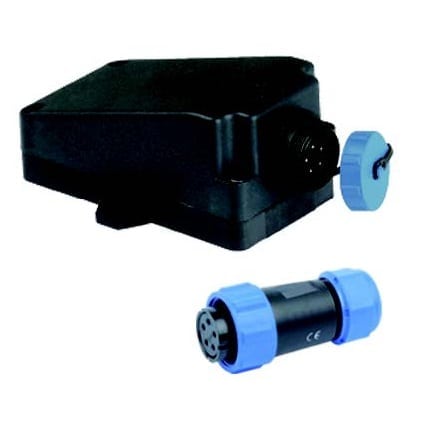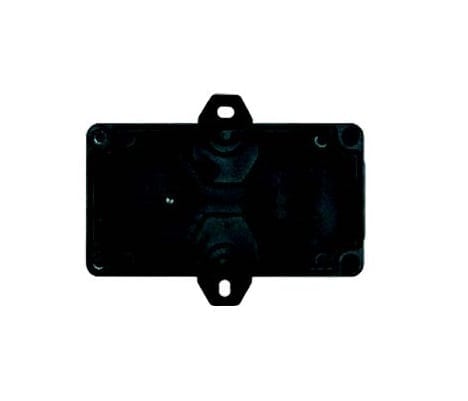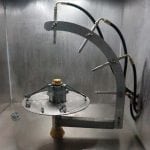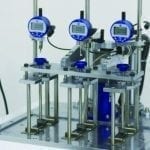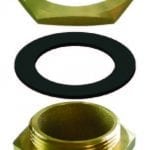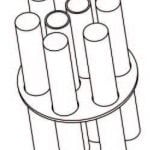Send an inquiry
Immersion heater enclosure for standard fittings with three M4 mounting screws at 120 °, Y3C1
This finned heater housing is used for standard fittings with three M4 mounting screws at 120 °.
| Dimensions | 54 × 54 × 74 mm |
|---|---|
| Ingress protection | |
| Mechanical protection | |
| Housing raw material | |
| Volume (cm³) |
SKU: Y3C1
Categories: Plastic housings, Immersion heater housings, Finned heater control boxes
Tags: finned heater, immersion heater, PA66, plastic housing, IK8, enclosure, IP69K
Red dimensions inside rectangular frames on drawings are used for accessories assembly.
Main features
This finned heater housing is used for standard fittings with three M4 mounting screws at 120 °.
Size: Dia.54 x 74mm
Volume: 180 cm³
Material: PA66
Ingress protection: IP69K
Mechanical impact resistance: IK8
Main references
| A | B | C | Reference |
| √ | × | × | Y3C10001120H200T |
| × | √ | × | Y3C10001120E100T |
| × | × | √ | Y3C100011200100T |
Cable gland not included in these reference, consult us if you want them.
3D models are available on request under .stp format
Downloads
Related products
Plastic housings
Plastic housings
Immersion heater enclosure with extension, in PA66 and PC Y3F3
Plastic housings
Technical informations associated to this product
-
Electrical protection classes
The housings are designed to protect electrical equipment located inside. This protection must be considered in the electrical and environmental angles.) -
Main properties of plastic raw materials used for enclosures
The classic housings, with only 5 sides and a lid, require a long and costly layout, most of the time ignoring the application needs: security, fire resistance, water penetration, shocks, UV, temperature, etc. -
Overview of immersion heater fittings
In Europe there are two common types of threads used on immersion heaters fittings. Threads according ISO 228-1, also said BSPP or cylindrical gas thread (G). 2mm pitch metric thread according ISO965-1, little used, which was the subject of an attempt to replace the ISO228-1 in the middle of the 20th -
Guide for immersion heater selection
Figures provided in this section are results of tests made in our laboratory. Charts were smoothened by computer, and are given for specified power and for information only.

